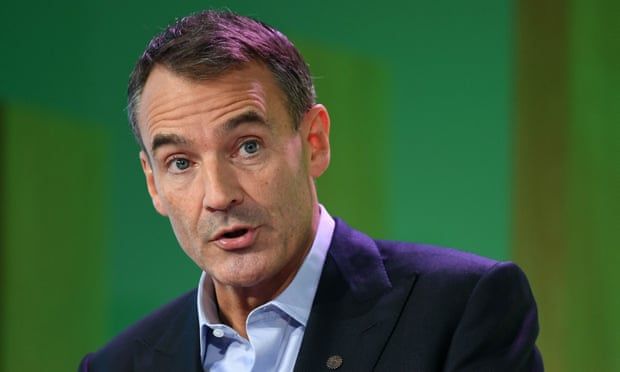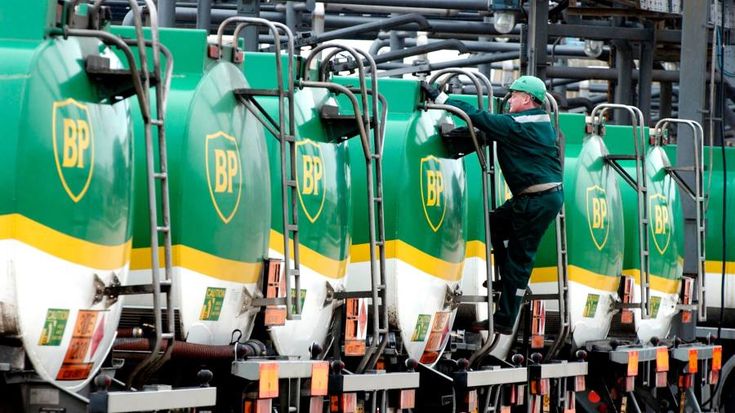BP’s Changing Energy Strategy
BP’s interim CEO, Murray Auchincloss, has strongly defended the company’s decision to scale back its renewable energy ambitions and increase investments in oil and gas, arguing that the company must adapt to market realities. BP had previously pledged to significantly cut its carbon footprint and invest heavily in wind, solar, and hydrogen energy, but now, the company plans to allocate up to $10 billion annually toward traditional fossil fuel projects. Auchincloss claims that global energy demand, financial sustainability, and energy security concerns have all played a role in this strategic realignment.
This decision marks a major departure from BP’s previous commitments to sustainability. In 2020, under former CEO Bernard Looney, the company had promised to reduce fossil fuel production, including oil and gas, by 40% by 2030 and pivot toward renewables. However, recent global energy crises, including Russia’s invasion of Ukraine, rising inflation, and a slowdown in renewable energy infrastructure development, have led BP to reconsider its approach, prioritizing fossil fuel investments alongside energy security.
Why BP is Reversing Course
Auchincloss has emphasized that BP’s previous optimism about a rapid green energy transition was misplaced, stating that global demand for oil and gas is still too strong to phase out fossil fuels as quickly as originally anticipated. He noted that energy security remains a top priority, especially in the wake of geopolitical tensions that have caused oil and gas price volatility.
Additionally, rising costs in the renewable energy sector have made some green investments less attractive in the short term. Inflation, supply chain issues, and higher interest rates have increased the cost of wind and solar projects, making them less profitable compared to BP’s highly lucrative oil and gas operations. The company has therefore decided to focus more on maximizing returns from fossil fuel assets while maintaining a slower, more measured approach toward renewables.

Investor Reaction and Financial Strategy
BP’s decision to pivot back to fossil fuels has received mixed reactions from investors. Some shareholders support the move, believing that a focus on high-margin oil and gas projects will deliver stronger financial returns in the near future. Others, however, are concerned that the company is backtracking on its commitments to long-term sustainability, which could hurt its reputation and future growth prospects.
As part of its new strategy, BP is also planning to sell off $20 billion worth of assets, including businesses such as Castrol and Lightsource BP, in an effort to reduce debt and improve financial flexibility. The company hopes that by streamlining operations and focusing on core revenue-generating activities, it can maintain strong profitability while still investing in select low-carbon technologies.
One of BP’s most vocal shareholders, Elliott Investment Management, has reportedly criticized the strategy for not going far enough, arguing that BP should be even more aggressive in maximizing shareholder value. Meanwhile, BP’s share price has fallen slightly since the announcement, indicating that investors remain uncertain about the long-term impact of the shift.
Environmental Backlash and Policy Challenges
BP’s move has been met with sharp criticism from environmental groups, who argue that the company is putting profits over the planet. Climate activists have accused BP of backtracking on its commitments to sustainability, warning that the world cannot afford to slow down efforts to transition away from fossil fuels.
Governments and regulators, particularly in Europe, may also put pressure on BP to maintain its green commitments. With the UK and EU pushing for net-zero emissions by 2050, there could be policy and regulatory consequences if BP’s fossil fuel expansion conflicts with national climate goals. Some policymakers have already hinted at the possibility of stricter regulations or higher carbon taxes to ensure that energy companies remain committed to emissions reduction targets.
BP’s Stance on Renewables: Not an Abandonment, But a Slowdown
Despite scaling back its renewable energy targets, BP insists that it is not abandoning its commitment to sustainability altogether. Auchincloss has clarified that BP will still invest in green energy, but the pace and scale of investment will be more measured based on financial and market conditions.
Instead of focusing heavily on wind and solar energy, BP is expected to shift toward carbon capture technology, biofuels, and hydrogen, which may offer better profitability and long-term stability. The company argues that these technologies will play a crucial role in reducing emissions while maintaining energy security.

Is This Part of a Larger Industry Trend?
BP is not alone in reassessing its renewable energy commitments. Other oil giants, including Shell, ExxonMobil, and Chevron, have also recently signaled a stronger emphasis on fossil fuel investments, citing similar concerns about energy security, financial returns, and the slower-than-expected development of green energy infrastructure.
This raises broader questions about the future of the global energy transition. Are oil companies slowing down on renewables just as a short-term financial strategy, or does this signal a longer-term retreat from ambitious climate goals? Some analysts argue that BP and its competitors are simply adapting to economic realities, while others warn that a slowdown in green investments could jeopardize global climate targets.
What’s Next for BP and the Energy Industry?
BP’s decision to return to its oil and gas roots could have significant implications for the future of the energy industry. While it may strengthen BP’s financial position in the short term, it also puts the company in a delicate position—balancing shareholder demands, environmental responsibilities, and regulatory pressures.
The next few years will be critical in determining whether BP’s move is a temporary course correction or a permanent shift away from its previous green ambitions. If renewable technologies become more cost-effective and government policies become more stringent, BP may face pressure to reaccelerate its transition.
For now, the oil giant remains firmly committed to fossil fuels, believing that the world will continue to rely on oil and gas for decades to come. Whether this bet will pay off or backfire remains to be seen.
Related Blogs: https://ciovisionaries.com/articles-press-release/

